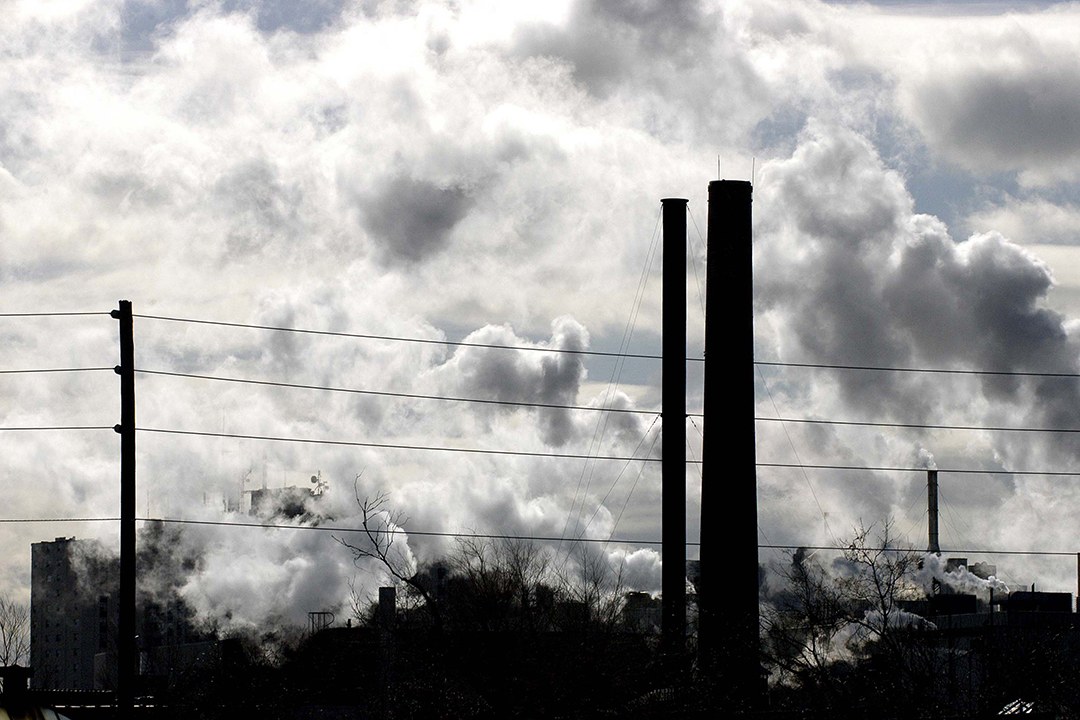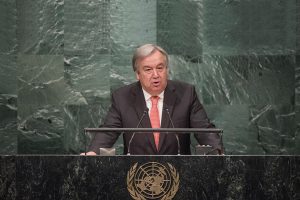23 July 2019: The UN, the World Health Organization (WHO), the UN Environment Programme (UNEP) and the Climate and Clean Air Coalition (CCAC) have announced the ‘Clean Air Initiative,’ which calls on national and subnational governments to commit to achieving air quality that is safe for citizens, and to align climate change and air pollution policies by 2030.
The Initiative seeks to simultaneously mitigate climate change, reduce air pollution and promote health, in a comprehensive manner. It is one of many initiatives that will be presented during the UN Secretary-General’s Climate Action Summit on 23 September 2019, which will provide an opportunity for new commitments and investments in interventions for climate-resilient health systems, and in air quality monitoring and policy implementation.
The Clean Air Initiative was developed as part of the Social and Political Drivers Action Area of the Summit, which is led by the WHO, the Governments of Peru and Spain, the UN Department of Economic and Social Affairs (DESA) and the International Labour Organization (ILO). The coalition seeks to improve people’s health, reduce inequalities, promote social justice and maximize opportunities of decent work for all, while protecting the climate for future generations.
The climate and air pollution crises are driven by the same factors and must be addressed by joint actions.
According to WHO, air pollution causes seven million premature deaths every year, 600,000 of which are children. The World Bank found that air pollution costs the global economy an estimated USD 5.11 trillion in welfare losses, and in the 15 highest-emitting countries, the health impacts of air pollution cost more than 4% of gross domestic product (GDP).
Meeting the goals of the Paris Agreement on climate change, however, could save over one million lives a year by 2050 and bring health benefits worth around USD 54.1 trillion through reduced air pollution, twice the amount spent on mitigation. At the moment, approximately 20% of Nationally Determined Contributions (NDCs) address the health implications of mitigation.
The UN Secretary-General’s Special Envoy for the Climate Action Summit, Luis Alfonso de Alba, announced the initiative on 23 July 2019 in New Delhi, India, following meetings with a range of stakeholders. He said the climate and air pollution crises are driven by the same factors and must be addressed by joint actions.
The Initiative involves commitments to:
- implement air quality and climate change policies that will achieve the WHO Ambient Air Quality Guideline values;
- implement e-mobility and sustainable mobility policies and actions to contribute to the reduction of road transport emissions;
- assess the number of saved lives, health gains in children and other vulnerable groups, and avoided financial costs to health systems from implementing policies; and
- track progress and share experiences and best practices through an international network supported by the Breathelife campaign.
The Initiative is expected to lead to numerous co-benefits. For example, improving air quality by developing e-mobility will lower healthcare costs, while reducing environmental damage and alleviating health symptoms caused by noise levels from conventional transport. Transport options, such as cycling and walking, will increase physical activity and help prevent diseases like diabetes and lung cancer. Thus, governments have the opportunity to advance climate and health goals and the SDGs at the same time. [UN Blog Post on the Clean Air Initiative] [CCAC News Story] [Health Commitments for the Climate Action Summit] [SDG Knowledge Hub Story on Call to Action on Climate and Health in Preparation for the Climate Summit]

